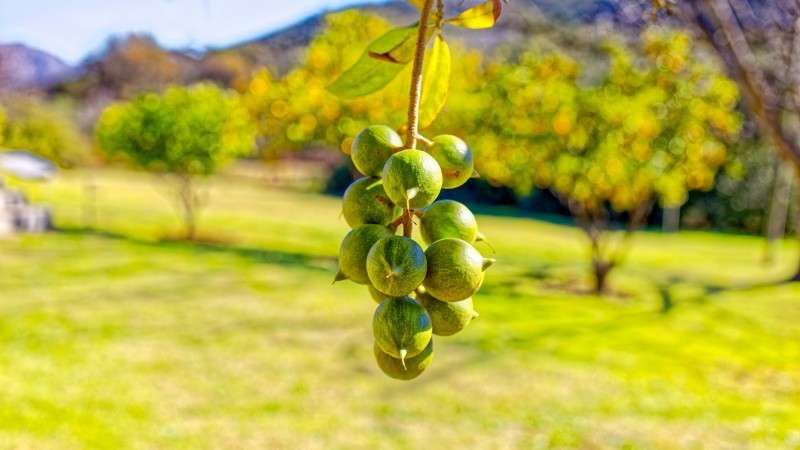Macadamias: “It’s the farmers who lose”
February 19, 2025 at 12:47 PM ,
Der AUDITOR

No solution in sight
Desperate and angry voices are being raised among growers and traders in Kenya. After the government extended the export ban on in-shell macadamias, the unsold goods are now rotting in warehouses, which naturally leads to considerable financial losses, as Kenya News reports. Despite repeated appeals to the responsible politicians, no solution has yet been found.
According to FreshPlaza, Johnson Kihara, chairman of the Nuts Traders Association of Kenya (NUTRAK), pointed out that the lack of export certificates from the Agriculture and Food Authority (AFA) is an obstacle that causes problems for both traders and farmers when it comes to storage. Kihara explained: "I have three containers of nuts in my stores yet the government has refused to issue export certificates. If I can't sell them, then I also can't buy macadamias from farmers. It's the farmers who lose." Some stakeholders are also calling for the abolition of Section 43 of the AFA Act, as it allegedly favours large processors with expensive machinery. The AFA, meanwhile, has announced that it will step up enforcement of the regulations that include unauthorised trade and improper handling of nuts.
Australia expands into Indian export market
There is good news for Australian macadamia exporters. As the Australian Macadamia Society (AMS) reports, the Indian government has officially amended its regulations for the import of Australian macadamias (Regulation of Import into India), meaning that market access is now much more straightforward. The change relates to the mandatory treatment of macadamia kernels to prevent the spread of pests; the requirements for treatment have now been amended so that it can be carried out much more quickly, saving Australian processors time and money.
Clare Hamilton-Bate, Managing Director of the AMS, described the revised entry requirements as a significant step forward in making India the next big export market for Australian macadamias. For some time now, the AMS's marketing strategy has been aimed at convincing Indian consumers of the high quality and great flavour of Australian macadamias, and the tactic has been a great success with customers. And indeed, with its 1.4 billion consumers, India offers great opportunities for Australian suppliers. In addition, the Economic Cooperation and Trade Agreement between Australia and India (ECTA), which came into force in 2022, is set to gradually reduce the tariff rate for Australian shipments to India from 30% to 0% in 2028.
EU imports mainly from Africa
EU imports in 2024 increased only slightly by 2% compared to the previous year and totalled 8.448 mt. The increase in export value is more significant, climbing by more than 13%. It is clear that African origins continue to play the most important role for customers in the EU. South Africa remains the most important supplier with 4,336 mt, while Kenya (+19% to 2,366 mt) and Malawi (+54.1% to 595 mt) occupy 2nd and 4th place. In between, Australia is in 3rd place, although shipments to the EU have fallen by more than 30% year-on-year. The largest buyers in 2024 were the Netherlands, Germany and Spain.
|
EU macadamia imports, in mt |
|||
|
Supplier |
2023 |
2024 |
Diff. |
|
South Africa |
4,306 |
4,336 |
0.7% |
|
Kenya |
1,989 |
2,366 |
19.0% |
|
Australia |
933 |
647 |
-30.7% |
|
Malawi |
386 |
595 |
54.1% |
|
Guatemala |
561 |
297 |
-47.1% |
|
Others |
108 |
207 |
91.7% |
|
Total |
8,283 |
8,448 |
2.0% |
|
DG AGRI TAXUD Customs Surveillance System, 01/01-31/12 08026200 Fresh or dried macadamia nuts, shelled |
|||
View more
- price charts for nuts, dried fruit, grains, oilseeds and more





